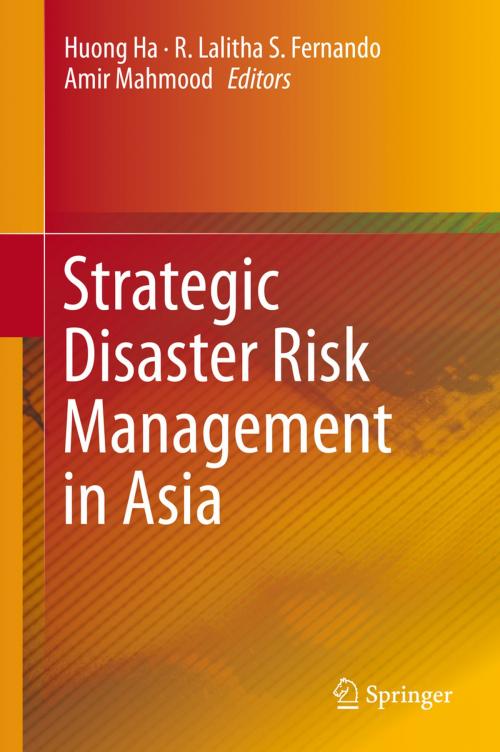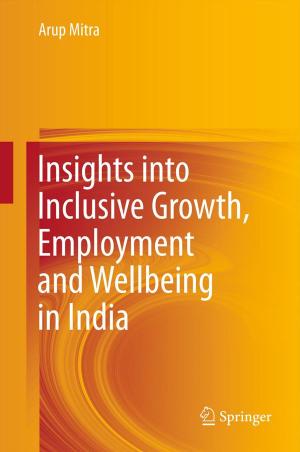Strategic Disaster Risk Management in Asia
Nonfiction, Reference & Language, Law, Administrative Law & Regulatory Practice, Science & Nature, Science, Earth Sciences, Social & Cultural Studies, Political Science| Author: | ISBN: | 9788132223733 | |
| Publisher: | Springer India | Publication: | May 29, 2015 |
| Imprint: | Springer | Language: | English |
| Author: | |
| ISBN: | 9788132223733 |
| Publisher: | Springer India |
| Publication: | May 29, 2015 |
| Imprint: | Springer |
| Language: | English |
This book presents strategies for managing disasters and reducing risks in Asian countries. Given the dynamic changes in the natural environment as well as the patterns of land use and management, the growing populations of the developing nations in Asia, migration patterns, and other social-cultural aspects, the impacts of disasters have increased manifold in Asian countries.
Against this backdrop, the book examines disaster management issues such as disaster preparedness, post-disaster reconstruction, peace, development and corruption. The views of different groups of stakeholders are incorporated in the discussion to ensure a comprehensive analysis of and findings on the governance process, as well as best practices in pre- and post-disaster management. The book also includes chapters focusing on aspects often overlooked in the context of disaster management, such as the need to invest in public education to improve public awareness, and approaches to supporting the disabled, the vulnerable and the elderly from disaster risks. In closing, the book presents research on disaster management methods employed by different countries in the Asian region.
Acknowledgement: The editors acknowledge the role of the Network of Asia Pacific Schools and Institutes of Public Administration and Governance (NAPSIPAG), which is the largest governance research network in the Asia Pacific region,in bringing out this book. NAPSIPAG has been regularly organizing international meetings of administrators, academia and non-state bodies to provide a forum to the regional scholars to deliberate with the international governance experts. It has also helped the international policy organizations to have a better understanding about the region through a local lens of Asiatic anthropology, ethnography and culture of administration.
This book presents strategies for managing disasters and reducing risks in Asian countries. Given the dynamic changes in the natural environment as well as the patterns of land use and management, the growing populations of the developing nations in Asia, migration patterns, and other social-cultural aspects, the impacts of disasters have increased manifold in Asian countries.
Against this backdrop, the book examines disaster management issues such as disaster preparedness, post-disaster reconstruction, peace, development and corruption. The views of different groups of stakeholders are incorporated in the discussion to ensure a comprehensive analysis of and findings on the governance process, as well as best practices in pre- and post-disaster management. The book also includes chapters focusing on aspects often overlooked in the context of disaster management, such as the need to invest in public education to improve public awareness, and approaches to supporting the disabled, the vulnerable and the elderly from disaster risks. In closing, the book presents research on disaster management methods employed by different countries in the Asian region.
Acknowledgement: The editors acknowledge the role of the Network of Asia Pacific Schools and Institutes of Public Administration and Governance (NAPSIPAG), which is the largest governance research network in the Asia Pacific region,in bringing out this book. NAPSIPAG has been regularly organizing international meetings of administrators, academia and non-state bodies to provide a forum to the regional scholars to deliberate with the international governance experts. It has also helped the international policy organizations to have a better understanding about the region through a local lens of Asiatic anthropology, ethnography and culture of administration.















